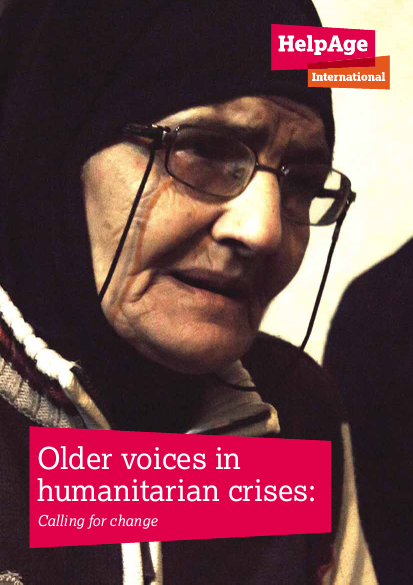
The first-ever World Humanitarian Summit, to be held in Istanbul in May 2016, provides a chance to honour that pledge and lay the foundations for a reformed humanitarian system – one that puts people at the centre of disaster response, builds resilience to crises with people affected and really does ensure that no one is left behind.
To pass the first hurdle, we must listen to what older people living in the midst of crisis have to tell us. During November and December 2015, HelpAge International interviewed 300 women and men aged 60 and over in cities, towns and camps in Lebanon, South Sudan and Ukraine. These older people are living through some of the most acute global crises in the world today.
In each context we found evidence of neglect that reflects the reality for older people caught up in disasters across the globe:
• The majority of people we spoke to said they had not been consulted about their needs.
• More than two thirds said they did not have enough information about the humanitarian assistance available to them.
• Almost half said health services did not provide care for their age-related conditions.
• Close to half said they felt anxious, hopeless or depressed most or all of the time.
This report offers older people the space to share their hopes and concerns and talk about the challenges affecting their daily lives. It contributes to a growing body of evidence illustrating the failure of the humanitarian system to protect their rights and meet their needs, and demonstrates the limited progress the humanitarian system has made to address the neglect of older people.
